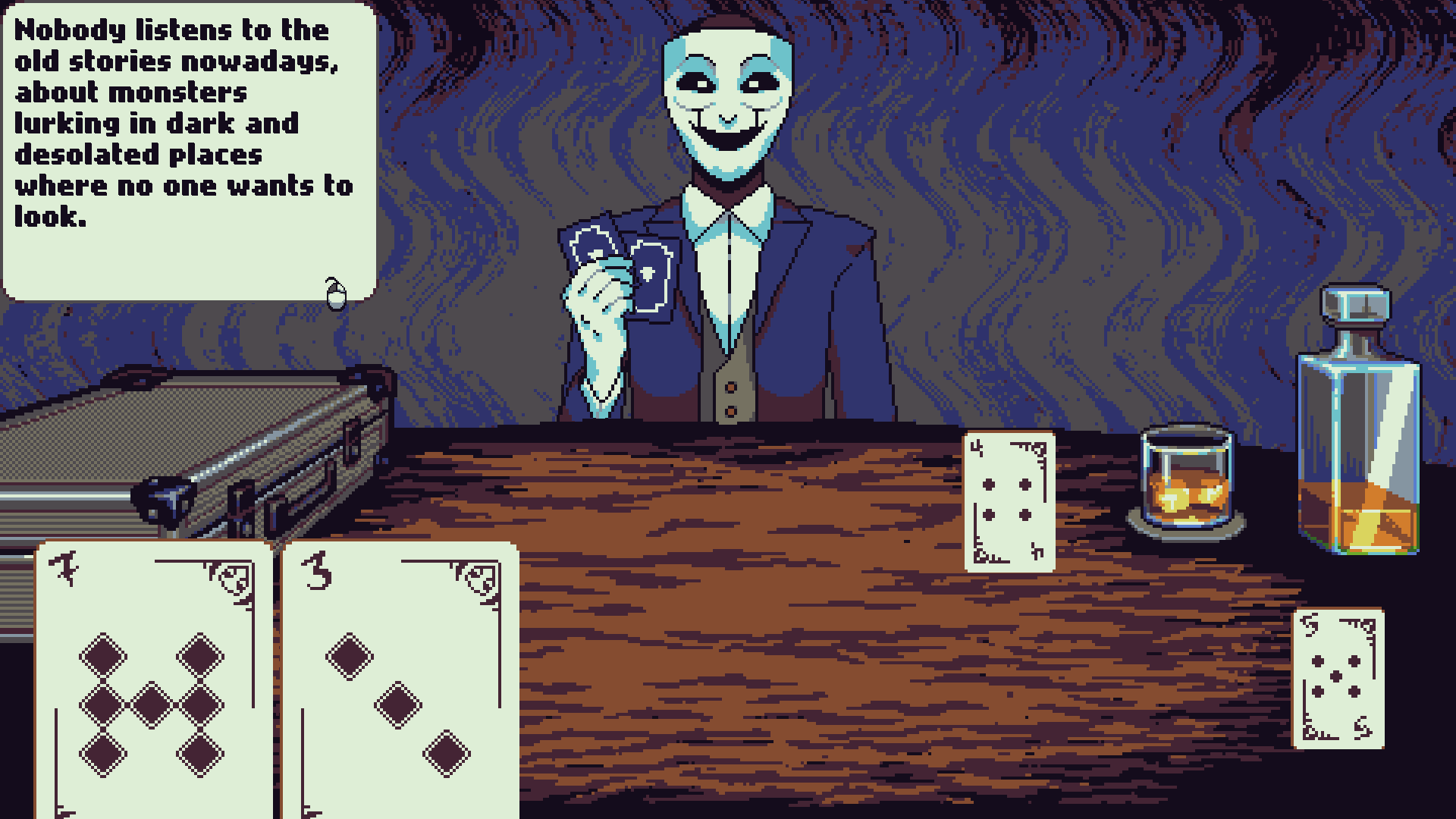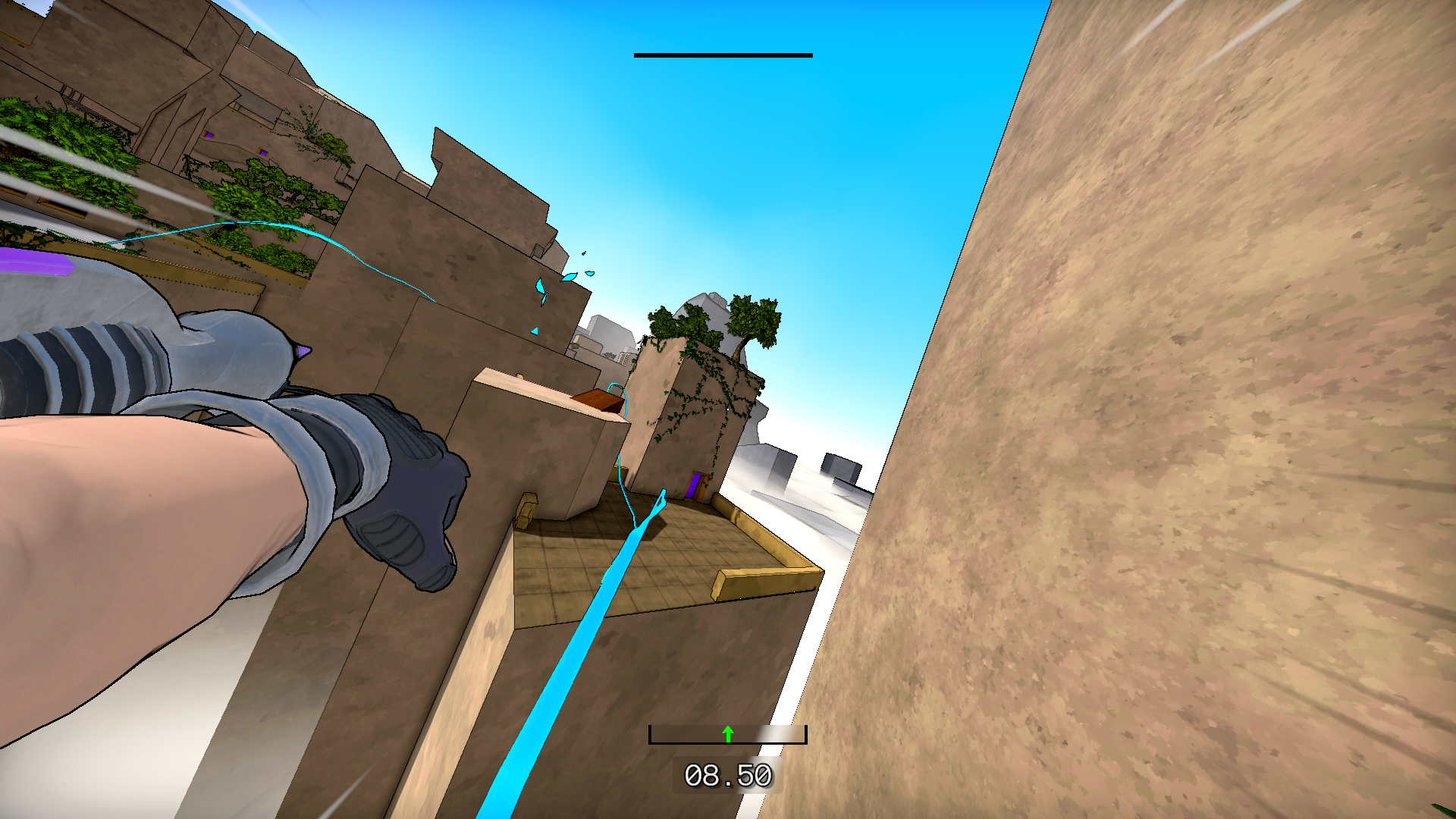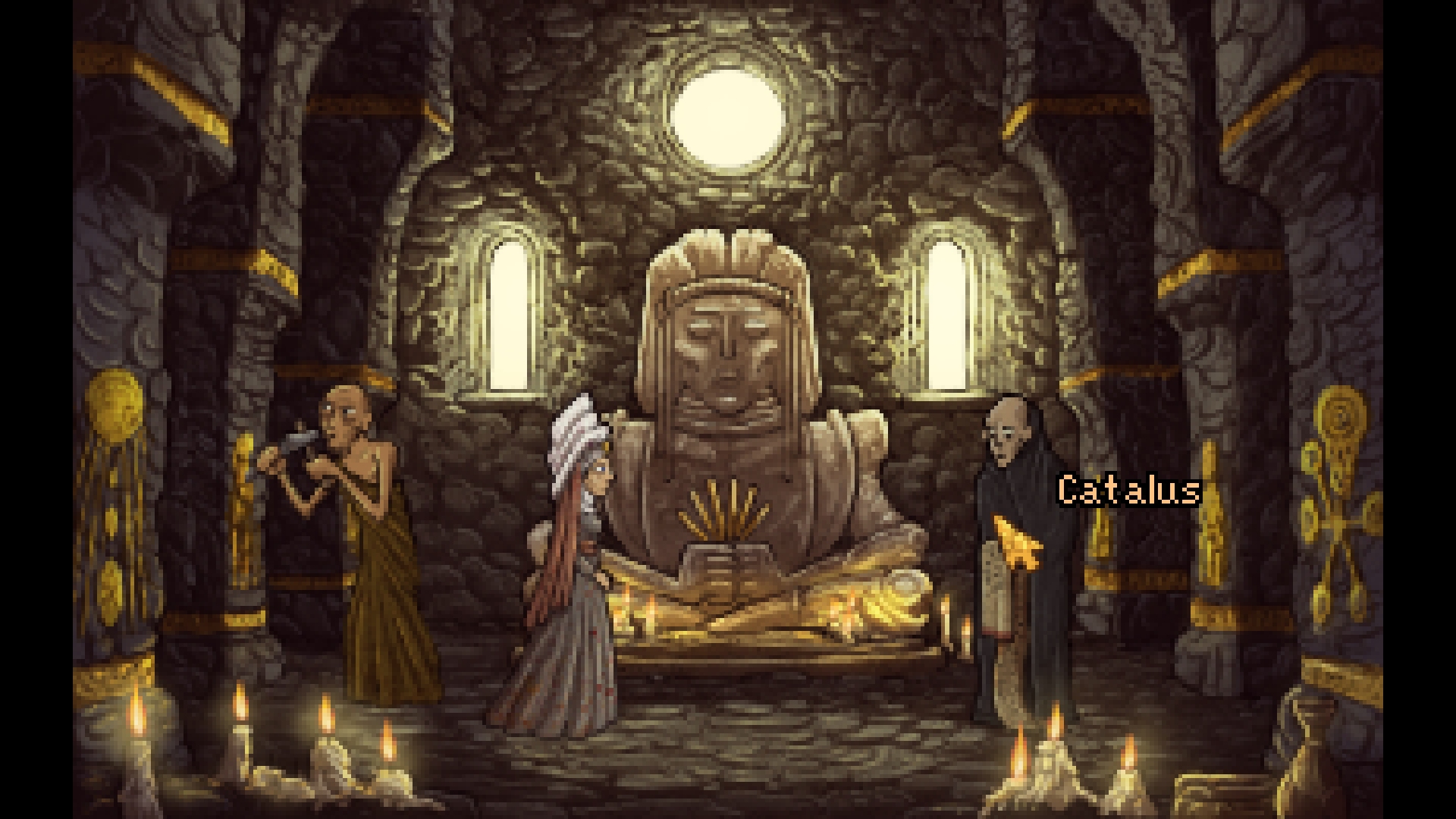Indies for the weekend
2023-09-29 by George P
Face Down
You find yourself at a table with nothing more than a closed briefcase, a bottle of whiskey, and a filled glass. A nightmarish aura clouds your surroundings. On the opposite side of the table, an ominous masked figure stares deeply at your soul. A demonic entity that steals people’s faces by tricking them into playing an unfair game of its own creation. You now remember why you are here. You have challenged this merciless monster to a match in order to reclaim the faces of your loved ones. But now, your own fate is the wager. The game is simple. Players hold two cards. They choose one and place it face down. The cards are then revealed. Whoever has the card with the highest number claims the card of his opponent and places it in his bank. The player who first manages to accumulate a score of 100 (card numbers added up) in their bank wins. Face Down is a short experimental card game that is masterfully able to combine a chilling atmosphere, an engaging narrative, and interesting mechanics into a singular experience.
I find it absolutely remarkable when developers are able to conceive an incredibly simple concept and transform it into an in-depth blueprint through well-thought-out game design and clever ideas. Face Down deserves such praise as it is able to use its simple story premise and minimal card game foundation to craft something more. Through the introduction of special cards and devious rules, the gameplay itself slowly becomes much more elaborate than just the barebones “whoever has the bigger card wins”. Face Down is a game that certainly has the potential of being expanded upon in the future in terms of both mechanics and lore. Let’s not forget for example how the highly successful indie game Inscryption (also an experimental narrative card game) began its journey as just a tiny but impactful Itch.io project. Face Down however missed the chance of being called “Face Off” which would have been an even better pun title!
Game Link

Ballistic Zen
Ballistic Zen is an innovative open-world parkour game that aims to combine elements of relaxation, challenge, and discovery into a distinct experience. Ballistic Zen’s core feature is its unique and cleverly designed movement system built around air-strafing. Most notably, you control your jet-powered character with nothing more than your mouse. “Ballistic Zen celebrates the joy and meditation of movement in games” is the way the developer chooses to describe the project’s vision. As someone who is not particularly familiar with the parkour genre, I was not sure how to originally interpret that statement. Nonetheless, it certainly caught my attention and piqued my curiosity.

Now, after having played the game, I think I have managed to get a good grasp of what the project’s author wanted to convey. There is something remarkably soothing, satisfying, and addicting about the experience that Ballistic Zen offers. The unique, carefully crafted, and polished movement system (alongside its minimal control scheme) is combined with clever and well-thought-out level design. The union of all these aspects allows for a smooth, refined, and highly engaging gameplay loop. The ingredient that makes Ballistic Zen even more enjoyable is player choice. If you want to wind down after a long week, you can elegantly surf while listening to music, uncover various collectables, and experiment with all kinds of tricks. If you are rather in the mood for something more demanding, you can challenge yourself on the game’s most difficult courses or improve your earlier performance through speed running. The open-world layout of Ballistic Zen’s map further enhances the element of player choice and introduces the dimension of exploration. I would not be surprised to see this game substantially expand in the near future as it has all the appropriate foundations to eventually become a full-scale commercial product.
Game Link
Shards of God
If you regularly play free indie games, you will sometimes stumble upon projects so high in overall quality that will make you ponder “How is this free?”. This was the exact question I asked myself after completing Shards of God. A point-and-click adventure that is truly brilliant in so many different ways that deserves a significantly larger amount of attention and coverage than it has gotten so far. Enter a cryptic Arab-esque world that hangs in the intricate balance between ancient aesthetics and futuristic technology. You assume the role of sister Ava, a junior member of a secret order who is able to communicate with Mun, the deity that presides over the realm. On your first pilgrimage to the country’s capital city, you will face an unexpected and incomprehensible problem. Mun has been murdered. How can one kill a god? Who did it and why? What secrets are hidden deep inside this city?

It will be your duty to crack this enigmatic and seemingly impossible conundrum. In your quest, you will encounter curious characters and impressive locations full of riddles. Through its brilliant writing, impeccable world-building, and clever game design, Shards of God is able to present a story filled with mystery, humour, and engaging puzzles. On the visual side, the old-school art style, the environmental design, and the animations are all excellent. On top of that, both the music and the sound design have been carefully crafted to perfectly fit the game’s atmosphere and pacing. The abundance of passion, talent, and effort that has been poured into this project is visible in all of the game’s facets. There is much more I could write about Shards of God but I would not want to ruin the sense of surprise and wonder for prospective players. This is an adventure that not only veterans but also newcomers to the genre will be able to enjoy and relish.
Game Link